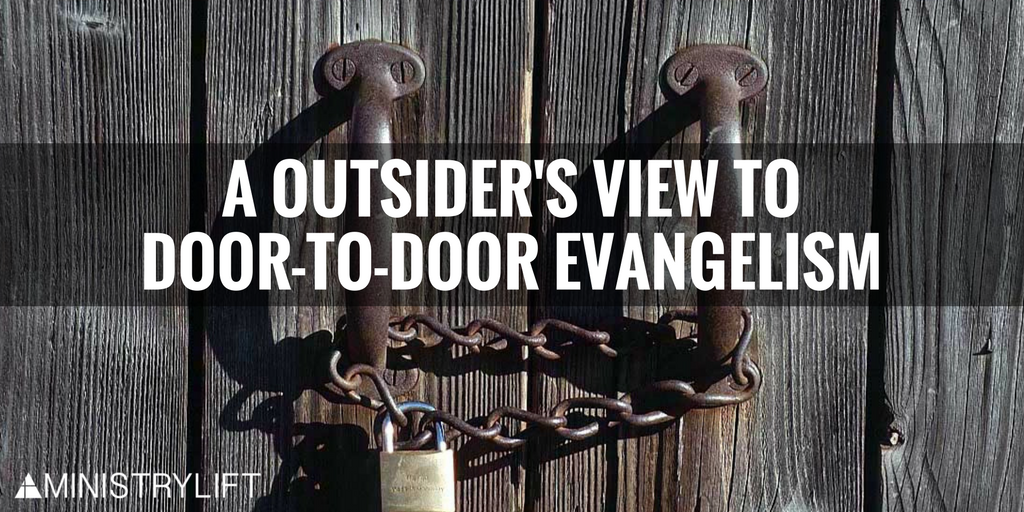An Outsider’s View to Door-to-Door Evangelism
They knocked on my front door on a Monday evening at the typical time: shortly after our dinner table had been cleared and just before our kids’ bedtime.*
I had not met the two young men who stood on my porch, but I quickly learned one was from Sacramento and the other from Salt Lake City. One introduced himself with the title of Elder, the other with only his first name. While they talked, my daughter gripped my hand and pirouetted from time to time. This wasn’t new to her either.
Visitors from the Church of Jesus Christ of Latter-day Saints have made it a habit to stop by our home. A few years ago, my wife and I invited a small group of missionaries into our home to discuss their faith in greater depth. This led to a series of meetings over several months and gave me the chance to participate in an Alpha course with a couple from the local LDS ward. The missionaries from that first meeting have returned to their respective hometowns, but the cycle of visitations is now continuing. New faces, new introductions, but very similar interactions.
After I bid them farewell, I collected my thoughts and reflected on how it felt to be an “outsider”—the person perceived to need the faith being presented. Many times, Christians try to think with this mentality so they can communicate the gospel message more effectively. But thinking from a certain perspective is much different than experiencing it firsthand.
Here’s what I learned from my latest interaction:
They came with a purpose
Pranks aside, people don’t knock on doors without a reason. Salespeople want me to change my gas or internet provider, my neighbour asks me for a favour, my friend arrives and doesn’t want to barge in. There’s always a reason for knocking.
But I can’t recall the Mormons telling me why they came. Their purpose almost felt covert and secretive, like they were embarrassed to tell me why they were standing on my porch—maybe they thought I was supposed to know.
Personally, I don’t feel that door-to-door evangelism is an effective tool for sharing the gospel. But my experience did make me think about the times when I’m engaged in a faith conversation with others. Am I able to articulate why I believe what I believe? And do I share the difference this makes in my day-to-day life?
They came with “expertise”
At one point, the young men told me they could help me understand the questions I might have in life. I felt somewhat offended as I took a closer look at them. Two young men—15 years my junior and strangers to me until a minute earlier—were going to provide me with greater understanding as we talked on my front porch? I felt skeptical to say the least.
The message of the gospel is one of victory—death itself has been defeated! But this does not mean that every question or doubt or challenge will vanish. The Christian faith is not a collection of answers to life’s questions, but the pathway to Jesus who promises to be with us in every circumstance.
They came with optimism
I’m guessing we’ve had Mormons visit us ten times over the past few years. They’ve wandered through our neighbourhood on cold, rainy evenings and on hot, summer nights. They’ve been persistent and expectant. I’ll sometimes ask if they’ve talked with any of my neighbours and so far, I’ve never heard them say yes (I’m quite sure they chose to keep their doors closed). But they keep coming.
I may not agree with their strategy and I certainly don’t agree with their theology, but their persistence is inspiring. It makes me wonder—do I have the same zeal to reach others with the gospel message? And if door-to-door evangelism isn’t my thing, then what is?
Keith Reed is the Associate Director of MinistryLift at MB Seminary.
* Within an hour of saying goodbye to the Mormon visitors, my daughter was in tears due to a self-inflicted injury and my son vomited. The timing of these visits never ceases to amaze me.

